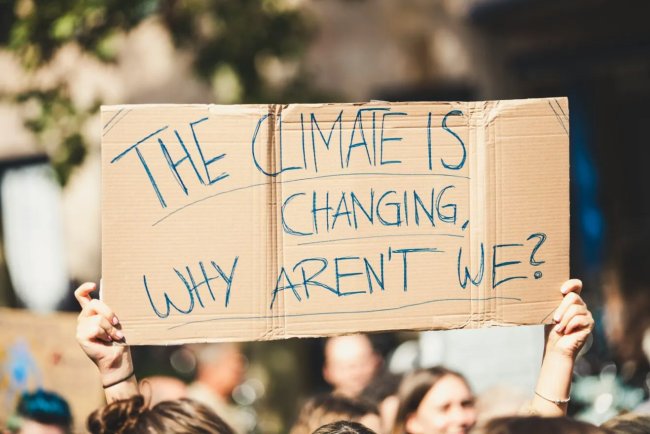ITC Unveils Plastic-Free Vision On Environment Day
ITC commits to plastic neutrality with innovative packaging and community waste management for a greener future.

In alignment with the global theme of “Ending Plastic Pollution” for World Environment Day 2025, ITC Limited has once again underlined its deep-rooted commitment to environmental stewardship through its innovative three-pronged strategy — ‘No Plastic, Better Plastic and Less Plastic’. Reaffirming its role as a sustainability leader, ITC continues to champion scalable waste management solutions and packaging innovations across its operations and partner industries.
At the heart of ITC’s plastic sustainability mission lies a robust framework that not only drives responsible packaging across its fast-moving consumer goods (FMCG) brands but also provides a wide range of biodegradable and recyclable packaging options for other industries. By reducing the reliance on plastic and promoting eco-friendly alternatives, ITC’s efforts are directly aligned with the Government of India’s “One Nation, One Mission: End Plastic Pollution” initiative, as well as the Swachh Bharat Abhiyan.
In FY 2024-25, ITC maintained its plastic neutrality status for the fourth consecutive year, having collected and sustainably managed over 76,000 tonnes of plastic waste. This milestone adds to the company’s impressive track record as a solid waste recycling positive enterprise for 18 years. Looking ahead, ITC has set an ambitious goal under its Sustainability 2.0 Vision — to ensure that 100% of its packaging is recyclable, reusable, compostable, or biodegradable by 2028.
Speaking on the occasion, Mr. S. Sivakumar, Group Head – Agri and IT Businesses and Sustainability at ITC Ltd., stated that ITC’s approach is built on the principle of “Responsible Competitiveness.” He emphasized the company’s 360-degree strategy, which integrates scalable community waste management models with cutting-edge sustainable packaging technologies. According to him, the three strategic pillars — No Plastic, Better Plastic and Less Plastic — are key to ITC’s mission to support the circular economy, inspire industry transformation, and empower citizens and businesses to adopt greener habits.
As the packaging industry witnesses a shift driven by regulatory demands and environmentally conscious consumers, ITC’s innovation pipeline is actively delivering planet-friendly alternatives. Under its ‘No Plastic’ strategy, the company’s Paperboards & Packaging business has introduced a line of biodegradable, paper-based packaging and moulded fibre products made from renewable plant sources. Supporting this innovation, ITC has inaugurated a modern moulded fibre manufacturing facility in Madhya Pradesh to meet the growing demand for sustainable packaging.
Several flagship products now embody these green transformations. The Aashirvaad Khapli Atta pack features a dual-layer “bag in bag” design with an outer 100% paper layer and a recyclable inner pouch. Sunfeast Farmlite Core Digestive biscuits are now offered in 100% paper outer bags, replacing conventional laminates.
Under the ‘Better Plastic’ pillar, ITC has replaced multi-layer plastic packaging in its Mangaldeep agarbattis with recyclable mono-material laminates. Similarly, Fiama Handwash is now packaged in monolayer pouches, while the PET bottles used for Fiama shower gels and handwash products now include 50% recycled plastic.
The ‘Less Plastic’ strategy focuses on reducing material usage through design innovation. For example, Engage deodorant spray cans have undergone packaging redesigns, resulting in a 31% weight reduction.
Beyond packaging, ITC is transforming waste management at the grassroots level through its “Well-being Out of Waste (WOW)” programme. Collaborating with local bodies and communities, the initiative promotes household waste segregation and awareness. As of this year, WOW has reached 7.2 million households, impacting over 29 million citizens and supporting the livelihoods of over 17,900 waste collectors.
Complementing this, the company’s Mission Sunhera Kal initiative implements decentralised solid waste management in 34 districts across 12 states. This community-led programme covers more than 75 lakh households, working to minimize landfill waste, strengthen plastic circularity, and support rag pickers and waste workers.
Youth engagement is also a key part of ITC’s strategy. Under the “YiPPee! Better World programme”, over 14 lakh students from 4,175 schools received education on plastic waste management. Notably, recycled plastic collected from this initiative has been repurposed into over 1,125 benches and tables, along with 350 sports kits for participating schools.
ITC’s hospitality arm, ITC Hotels, continues its journey of ‘Responsible Luxury’ by eliminating single-use plastics from 150 touchpoints in hotel operations. This effort alone has helped eliminate nearly 2.5 lakh kg of plastic annually.
From pioneering sustainable product design to empowering communities and future generations, ITC’s multi-layered approach to plastic reduction and recycling reflects its unwavering dedication to environmental responsibility. As the company forges ahead with its vision for a circular economy, its integrated efforts offer a replicable model for businesses striving to balance growth with ecological stewardship.
What's Your Reaction?

















